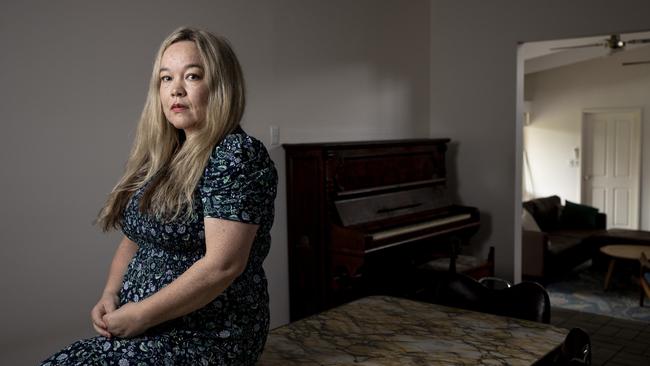Scans to provide new hope in cancer fight
People who carry a gene mutation that places them at extreme risk of developing a range of cancers will for the first time be able to access regular publicly funded full-body MRI scans.

People who carry a gene mutation that places them at extreme risk of developing a range of cancers will for the first time be able to access regular publicly funded full-body MRI scans in a development that will detect them early and save many lives.
The full-body MRI scans for those with Li-Fraumeni syndrome – an inherited genetic predisposition to a wide range of cancers – have been approved by the Medical Services Advisory Committee and will be funded by the federal government under the Medicare Benefits Schedule.
It means that those with the genetic condition will be able to access regular scans that will dramatically reduce the chances of dying from a range of cancers for which they have a 50 per cent likelihood of developing before the age of 30.
LFS is a hereditary condition caused by mutations in a gene called TP53 that is involved in suppressing tumours. When damaged, the gene cannot prevent tumour growth.
Half of carriers develop cancer by the age of 30, and the overall lifetime risk is more than 90 per cent. There are estimated to be up to 1000 people in Australia with LFS, and children of parents with the disorder have a 50 per cent chance of inheriting it.
Sufferers can develop cancers anywhere but breast cancer, sarcomas and brain tumours are common. The new MBS item will be listed from March 1, with the federal government committing to fund the scans initially for four years at a cost of $1.9m.
The government funding followed a successful application to the committee led by the national non-profit precision oncology program Omico, which counts the Garvan Institute, the University of Sydney and the Peter MacCallum Cancer Centre among its members.
The committee’s recommendation in favour of full-body MRI scans for LFS sufferers was based on a finding that they were instrumental in detecting cancers at an early and curable stage in patients with the disorder, in a global study co-led by Garvan Institute and Peter MacCallum Cancer Centre researchers.
David Thomas, head of the Genomic Cancer Medicine Laboratory at Garvan and chief executive of Omico, said the research had shown that about one in 10 people with LFS would have a “silent cancer” identified that was growing within them if they had a full-body MRI scan.
“These cancers can then be treated with surgery if you can pick up them up at an early stage,” Professor Thomas said.
“I think it’s turned them from being a group of people who have a terrible risk of developing cancer and being unable to do something about it to finally having a tool to make a difference to live long and healthy lives. It provides them with hope.”




To join the conversation, please log in. Don't have an account? Register
Join the conversation, you are commenting as Logout